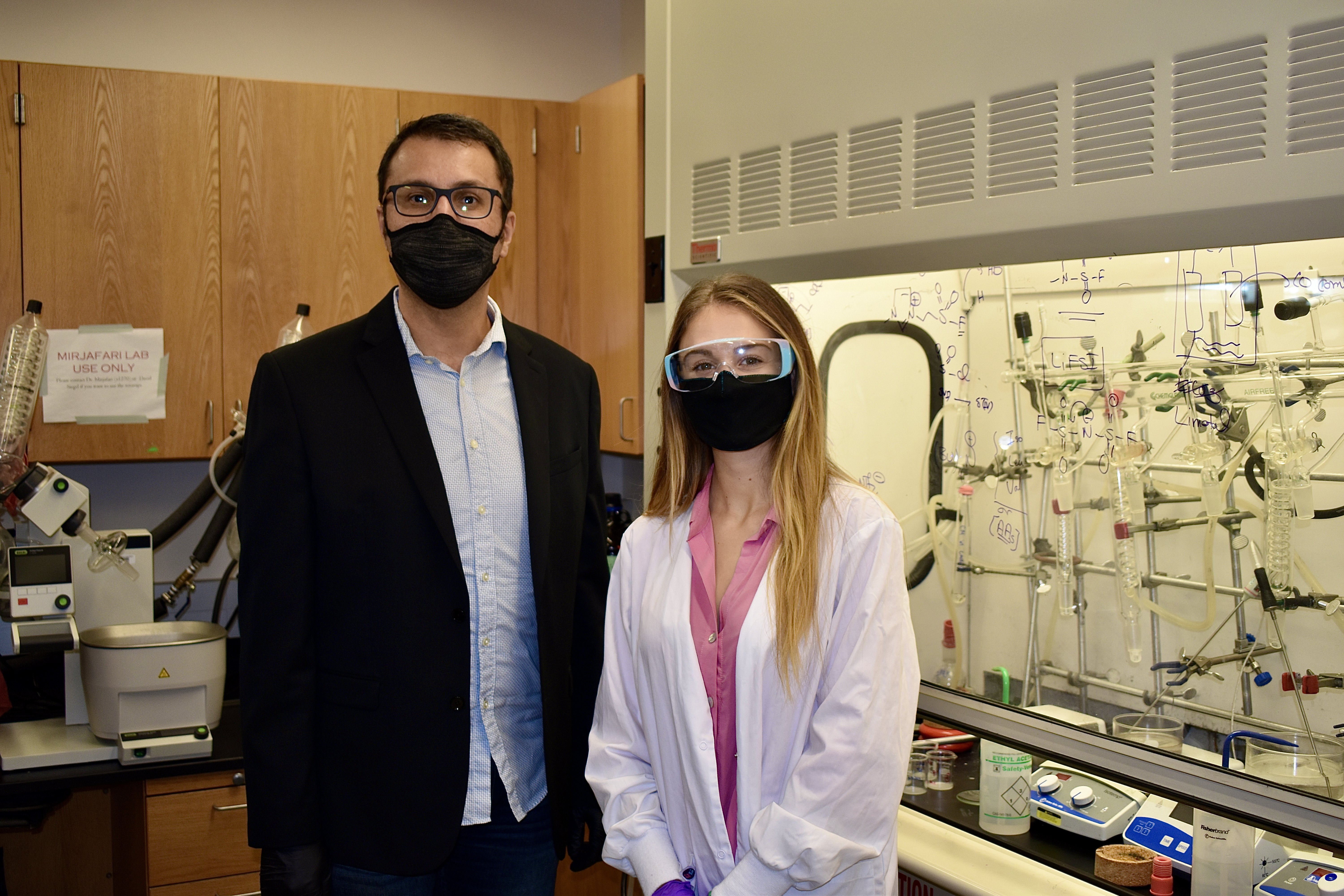
07 Oct 2020 FGCU Program Focuses on Climate Change and Future Scientists
For a look at the here-and-now impacts of climate change, scientists note the rise in the number and frequency of destructive weather events. Here in Southwest Florida, a hyperactive hurricane season still has two months to go, but we’ve already run through the 21 storm names assigned for 2020 by the World Meteorological Organization. Trackers have pushed into the Greek alphabet with Alpha and Beta. By the end of September, 23 named storms had formed, nearly doubling what is considered a normal year.
Whether it’s our tropical cyclones, super-cell tornadoes in the Plains and Midwest, wild weather swings in the Northeast or explosive wildfires in drought-stricken Western states, extreme meteorological conditions have been dominating seasonal weather patterns.
Mounting research by such global scientific bodies as the UN’s Intergovernmental Panel on Climate Change implicates the prime culprit: rising carbon dioxide (CO2) levels in the atmosphere attributed to human activities, causing the planet to warm at a concerning rate.
A dual-purpose research project at FGCU is focused on helping to curb the alarming rise in those climbing levels as it introduces high school students to hands-on lab research. The effort, which involves a membrane process to remove CO2 from ambient air, is being led by FGCU Chemistry & Physics Associate Professor Arsalan Mirjafari and Program Coordinator/Associate Professor of Chemistry & Physics Gregory McManus.
In a broad sense, a membrane is a barrier that selectively allows certain items to pass through while preventing others; think of an air conditioning filter, for example. The project’s “membrane” refers to, not a physical barrier, but a chemical one at a molecular level, one that selectively induces a reaction among elements that comprise air in the earth’s atmosphere, primarily nitrogen and oxygen. The targeted outcome of the research is to allow those molecules to remain unaffected, while carbon dioxide molecules are removed.
Prof. Mirjafari draws an analogy. “If chemists are like architects, think of them as combining atoms and molecules together to achieve a very specific task. So, the membrane is going to have a very specific structure that only interacts with CO2. We will be able to see that in the lab.”
Beyond the project’s research component, the initiative is designed to provide valuable lab experience for high school students who will be part of the next generation of scientists.
“We have two objectives, one scientific and one educational,” explains Prof. Mirjafari. “First, develop a technology to take CO2 from the ambient air directly, known as direct air capture, with a technology that’s inexpensive, completely benign and ultimately scalable. The second objective is training future chemists.”
To achieve that objective, high school students will work in the university research lab alongside FGCU students. The professors are passionate about STEM education (Science, Technology, Engineering and Math), which is why it’s a key effort in the program.
To seek student applications, Prof. McManus says they partnered with the university’s Whitaker Center, tapping into the Center’s network of regional high school relationships. Twenty-seven students from 11 high schools applied, and four were selected from Immokalee, Naples and Fort Myers.
Prof. Mirjafari emphasizes, “We wanted to especially focus on underrepresented students who may not have the infrastructure in their lives to pursue becoming a scientist or engineer. We think it’s important to help them find their passion, and also to help society in that way.”
Although COVID-19 disrupted the originally envisioned schedule, Prof. McManus says, “We’ve been meeting with them online through Zoom to talk about the project, and they’ve met some of our undergraduate research students in that way. Now our plan is to get the high school students on campus and into the lab this Fall. We’re really excited to get going.”
The professors say the support of the Southwest Florida Community Foundation has allowed them to stay the course as they adjusted the project’s schedule and the Foundation extended the grant for a second year, further bolstering their efforts.
“The grant was supposed to run until the end of December,” Prof. McManus says, “but they’ve already renewed the funding for the next year, which is amazing. That will allow us to run the program again and opens things up to be able to do a lot more.”
When it comes to a recognition of rising CO2 levels in the atmosphere as a driver of climate change, the country’s current political environment makes for strong headwinds. But, as part of the scientific community, the two FGCU faculty members will continue to press forward as they seek knowledge and pursue solutions to climate challenges that impact both current and future generations.
Prof. Mirjafari says, “We believe this is something that needs to be addressed, and we need to have our contributions as scientists, because our job is to help make people’s lives better.”
For more information, please contact Arsalan Mirjafari at [email protected] or Gregory McManus at [email protected].
This article is part of a summer series that highlights the vital work of regional recipients of 2020 Community Impact Grants from the Southwest Florida Community Foundation..
About the Southwest Florida Community Foundation
The Southwest Florida Community Foundation, founded in 1976, cultivates regional change for the common good through collective leadership, social innovation and philanthropy to address the evolving community needs in Lee, Collier, Charlotte, Hendry and Glades counties. The Foundation partners with individuals, families and corporations who have created more than 400 philanthropic funds. Thanks to them, the Foundation invested $7.7 million in grants and programs to the community. With assets of $134.9 million, it has provided $85 million in grants and scholarships to the communities it serves since inception. The Foundation is the backbone organization for the regional FutureMakers Coalition and Lee County’s Sustainability Plan. The Southwest Florida Community Foundation’s regional headquarters are now located in the historic ACL Train Depot at Collaboratory in downtown Fort Myers, with a satellite office located in LaBelle (Hendry County). For more information, call 239-274-5900 or visit www.floridacommunity.com


